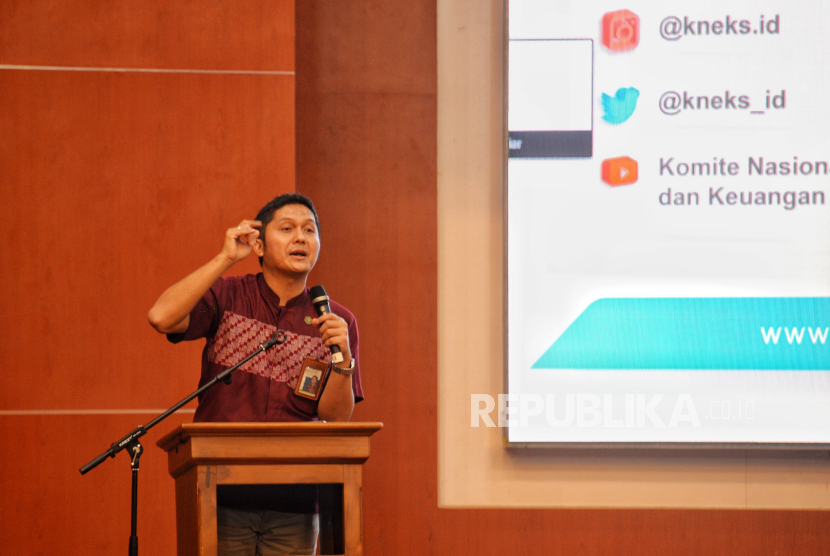REPUBLIKA.CO.ID, JAKARTA -- The Executive Management of the National Committee for Sharia Economics and Finance (ME KNEKS) received a visit from the Head of Secretariat of Malaysia's International Islamic Financial Centre (MIFC) Leadership Council (MLC), Firdaus Suffian Abdul Latif, in early November.
The visit was a follow-up to the signing of the Memorandum of Cooperation (MoC) in May 2024 between Plt. KNEKS Executive Director, Dr. Taufik Hidayat, and MLC Chairman, Tan Sri Azman Mokhtar, witnessed by Malaysian Prime Minister, Anwar Ibrahim, at the Global Forum on Islamic Economics & Finance (GFIEF) 2024 event in Kuala Lumpur.
During the meeting, ME KNEKS Director of Sharia Ecosystem Infrastructure Sutan Emir Hidayat presented various achievements and opportunities for the development of Sharia economy and finance in Indonesia. He stressed the importance of an integrated ecosystem approach, which includes the sharia finance sector, sharia business and entrepreneurship, the halal products industry, as well as strengthening regulation and human resources.
“Accelerating the development of the sharia economy in Indonesia is done by building an integrated ecosystem in various sectors, from finance to the halal industry, as well as strengthening human resources to support sustainable development,” said Sutan Emir.
Meanwhile, Firdaus Suffian Abdul Latif highlighted the great potential for collaboration between Indonesia and Malaysia in various sectors, from sharia commercial and social finance to sharia entrepreneurship and the halal industry.
He also expressed the importance of strengthening human resources, knowledge sharing, capacity building, and sharia economic and financial research as part of cooperation between the two countries.
“We see a lot of potential to deepen collaboration between Indonesia and Malaysia in the development of the sharia economy, both in the financial and entrepreneurial sectors. In addition, strengthening HR and joint research will be the key to the success of this collaboration,” says Firdaus Suffian.
MLC also offers a three-party collaboration concept involving various MLC partner countries, such as the UK, Turkey, Hong Kong, the United Arab Emirates, as well as the Islamic Development Bank (IsDB) Halal Center of Excellence. This is expected to open up more opportunities for the two countries to expand the reach of international cooperation.
In the ongoing discussions, several concrete steps were identified including talent development and capacity building programs for sharia economic and financial human resources in both countries, as well as the exchange of knowledge and best practices related to the development of sharia finance, both in the commercial and social sectors.
“We are committed to accelerating these collaborative programs in order to immediately deliver tangible benefits to the development of the sharia economy in Indonesia and Malaysia,” added Sutan Emir.
In addition, the two countries also agreed to carry out joint research and case studies that can enrich the insights of the development of the sector.
“Collaboration in research and case studies will help us identify innovative solutions to address the challenges faced in the development of the sharia economy,” said Firdaus Suffian.
Expanding collaboration with various stakeholders from countries already working with MLC was also a key focus, and the two sides agreed to form a Working Group that would plan, implement and monitor the agreed collaboration programmes.
With this collaboration, it is hoped that the sharia economic and financial ecosystem in Indonesia and Malaysia will become more integrated and developed, and can contribute greatly to the strengthening of the sharia economy sector at the global level.


